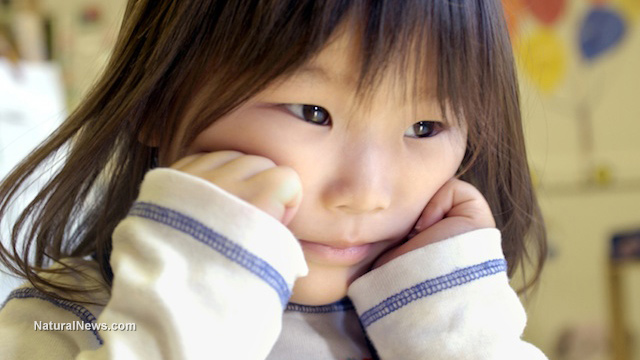Children thyroid cancer rates 20 to 50 times higher in Fukushima Prefecture
Thursday, October 08, 2015 by Greg White
http://www.bugout.news/2015-10-08-children-thyroid-cancer-rates-20-to-50-times-higher-in-fukushima-prefecture.html

Thyroid cancer rates are increasing among children who live at the Fukushima Prefecture. According to a new study, thyroid cancer rates are 20 to 50 times higher among children who live inside the prefecture than those who don’t. These findings suggest that the spike in thyroid rates is a consequence of radiation rather than more stringent monitoring in the region.
Approximately 370,000 children live in the Fukushima Prefecture, most of whom have been given ultrasound check-ups since a tsunami decimated the power plant in 2011. A batch of statistics released in August revealed that 137 children either had or were suspected to have thyroid cancer – a number that rose by 25 from the year earlier. By contrast, thyroid cancer occurs in only one or two children per million outside the prefecture.[1]
“This is more than expected and emerging faster than expected,” lead author Toshihide Tsuda told The Associated Press. “This is 20 times to 50 times what would be normally expected.” The study was released online this week and is expected to be published in the November issue of Epidemiology, produced by the Herndon, Virginia-based International Society for Environmental Epidemiology.[1]
The relationship between thyroid cancer and radiation
The relationship between cancer rates and radiation is difficult to define, since there are a myriad of factors that effect an individual. All scientists can do is draw a tight correlation between cancer rates and radiation. Perusing routine check-ups enables researchers to discover tumors quickly.
Following the catastrophe, the lead doctor brought in to Fukushima, Shunichi Yamashita, denied that radiation-bred illnesses would plague the region. The government claimed that thyroid check-ups were ordered as a precautionary measure.
Nevertheless, Tsuda, a professor at Okayama University, claims that the latest results from the ultrasound check-ups undermine the government’s claims. Thyroid cancer among children is one of the illnesses that doctors have competently linked to radiation exposure since the Chernobyl catastrophe. If detected early, thyroid cancer is fairly easy to treat, though patients can expect to be on medication for the rest of their lives.[1]
The nuclear fallout from the Fukushima disaster isn’t bound to Japan but blankets the globe. Click here to learn how you can naturally reduce your risk of radiation damage and thyroid cancer.
New findings polarize scientific community
Scientists are skeptical of Tsuda’s conclusions, however. In the same Epidemiology issue, Scott Davis, professor at the University of Washington School of Public Health’s Department of Epidemiology in Seattle, argues that the study fails to consider the amount of radiation exposure on a case-by-case basis.[1]
Davis is in accordance with the World Health Organization (WHO), which proclaims that cancer rates will remain stable in the region.
David J. Brenner, professor of radiation biophysics at Columbia University Medical Center, believes otherwise. David agrees that the study needs to account for radiation exposure on a case-by-case basis. Nevertheless, he notes that the thyroid cancer rate in Fukushima is “not due to screening. It’s real.”[1]
Japanese citizens have grown to distrust government claims that cities impacted by the disaster are safe to return to. So much so that many people have fled the region out of fear for their health. The results of the study should help officials determine fair compensation and other government policies.
An area spanning 12 miles surrounding the Fukushima Daiichi site has been marked as an exclusion zone. Regardless, radiation from the power plant continues to bleed into the surrounding area. Optimistic estimates suggest that it will take 40 years to clean up the Fukushima site.
Andrew F. Olshan, professor at the Department of Epidemiology at the University of North Carolina, in Chapel Hill, says it’s difficult to analyze a disaster but Tsuda’s findings should not be ignored.
“Dr. Tsuda’s study had limitations including assessment of individual radiation dose levels to the thyroid and the ability to fully assess the impact of screening on the excess cases detected,” he said. “Nonetheless, this study is critical to initiate additional investigations of possible health effects, for governmental planning, and increasing public awareness.”[1]
Sources include:
[1] APNews.MyWay.com
Tagged Under: Tags: children, Fukushima Prefecture, nuclear power, radiation, radioactive waste, thyroid cancer

